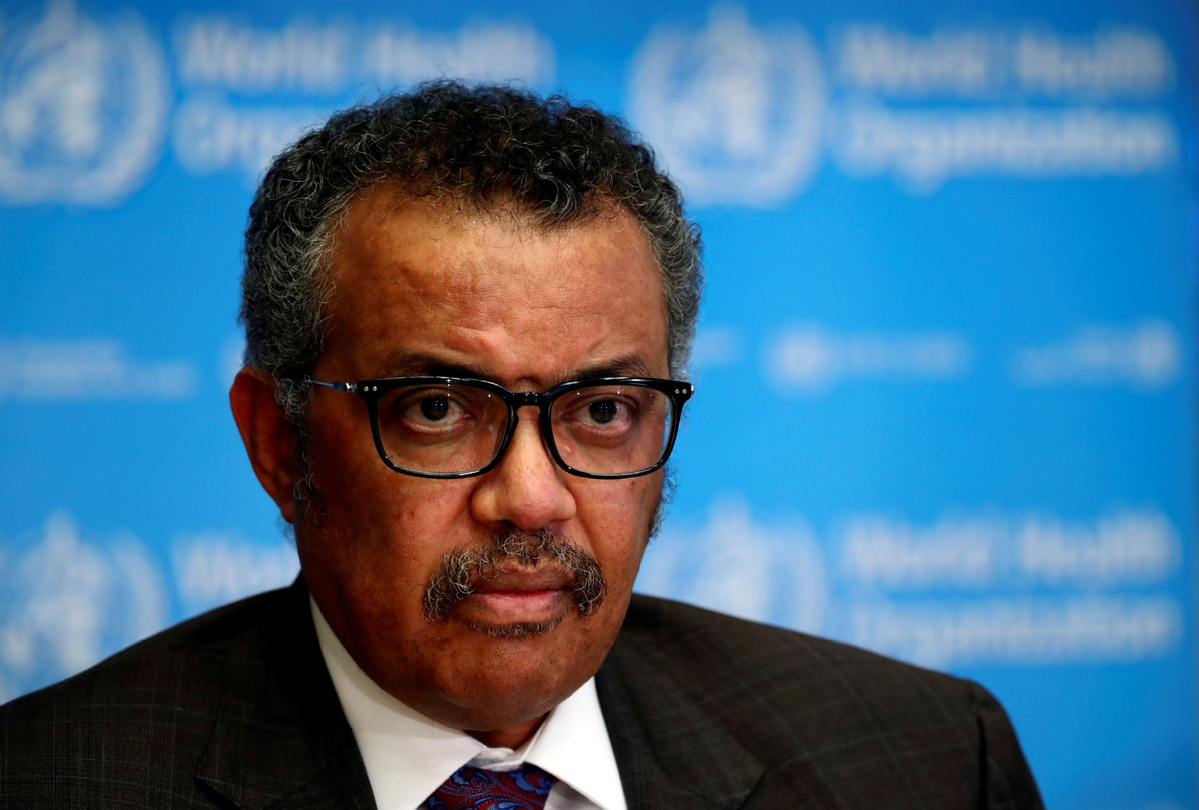Vaccines plus further precautions needed to stop pandemic warns WHO
By Bo Leung in London | chinadaily.com.cn | Updated: 2021-11-13 02:33

The head of the World Health Organization has stressed that vaccines alone can not end the pandemic.
During a media briefing on Friday, WHO director-general Tedros Adhanom Ghebreyesus said while vaccines reduce the risk of hospitalization, severe disease and death, they do not fully prevent transmission.
"Some European countries are now reintroducing restrictions to curb transmission and take the pressure off their health systems," Tedros said. "We continue to recommend the tailored and proportionate use of testing, masks, physical distancing, measures to prevent crowding, improve ventilation, and more. And get vaccinated when it's your turn."
Tedros' warning comes after 2 million COVID-19 cases were reported in Europe last week.
This is the most in a single week in the region since the pandemic started, the WHO head said, adding that Europe reported some 27 thousand deaths, more than half of all COVID-19 deaths globally last week.
"COVID-19 is surging in countries with lower vaccination rates in Eastern Europe, but also in countries with some of the world's highest vaccination rates in Western Europe," Tedros said. "It's another reminder, as we have said again and again, that vaccines do not replace the need for other precautions."
The WHO noted that with a right mix of measures, it's possible for countries to find the balance between keeping transmission down and keeping societies and economies open.
But Tedros said countries cannot vaccinate their way "out of the pandemic".
He added: "It makes no sense to give boosters to healthy adults, or to vaccinate children, when health workers, older people and other high-risk groups around the world are still waiting for their first dose. The exception, as we have said, is immunocompromised individuals."
Tedros again criticized countries that have high vaccine coverage, and which are continuing to stockpile vaccines, when low-income countries are still having to wait.
He pointed out that COVAX, a worldwide initiative aimed at equitable access to COVID-19 vaccines, is working. The initiative has shipped some 500 million vaccines to 144 countries and territories.
"To reach WHO's target of vaccinating 40 percent of the population of every country by the end of this year, we need an additional 550 million doses, about 10 days' production," Tedros said. "Vaccines alone will not end the pandemic, but we cannot end the pandemic unless we solve the global vaccine crisis."
























